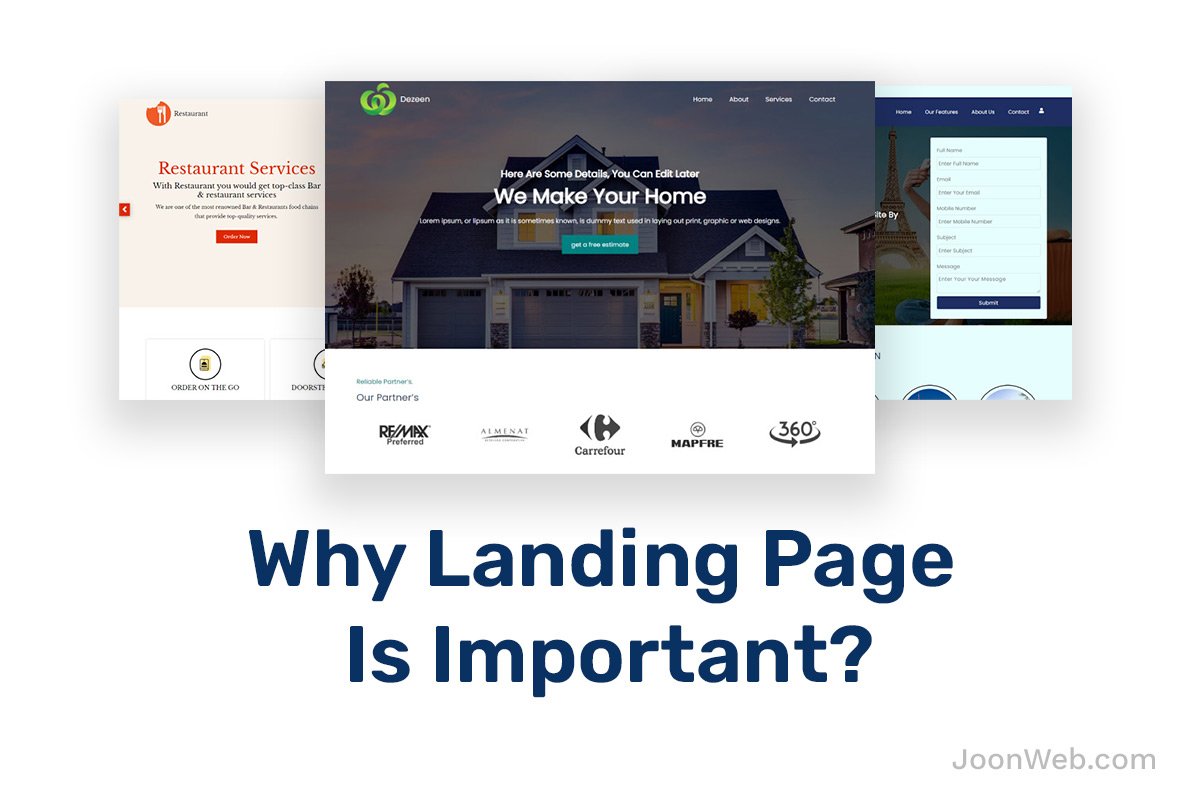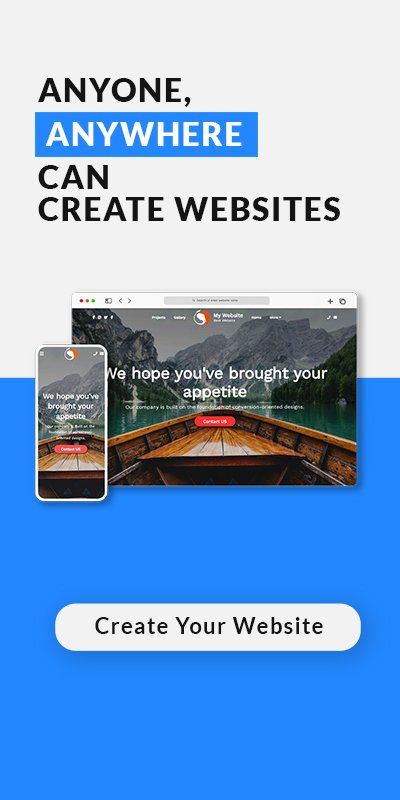A landing page is a single web page that a visitor visits after clicking on a link in an email, advertisement, or another digital source. Users are encouraged to take action after they arrive on your landing page, such as joining your mailing list or purchasing your products. If the user completes the desired action, your landing page has been successful in converting them. One of the best examples of a landing page is Udemy's business page.
Table of Contents
1. How Does a Landing Page Work?
4. How Does A Landing Page Impacts Visitors On Your Website?
5. Ways To Enhance Your Landing Page
How Does a Landing Page Work?
Typically, landing pages simply encourage visitors to take one action, such as filling out the page's custom signup form. Why? It's due to the "paradox of choice," as researchers describe it. Simply put, the more options you provide individuals, the more difficult it is for them to make a decision and act.
Assume you're giving away a free ebook. Visitors to your landing page, on the other hand, are encouraged to read your blog, purchase a product, and follow you on social media. Because you've diverted their focus away from your core goal with each request, the chances of their downloading your new ebook are dwindling.
On the other hand, too many alternatives can overwhelm your users, causing them to stall and take no action. This is why it's so important to concentrate on just one call to action (CTA) rather than three or four. This is why a landing page's visual hierarchy and value proposition should be obvious, and it should be evaluated for optimal conversion optimization.
Homepage v/s Landing Page
There are a few differences between homepages and landing pages that are mentioned here:
- Landing Pages contain lesser links in comparison to Homepages. At least ten links can be found on a typical homepage. There's usually a top-level navigation menu, links in the footer, and several links throughout the page's content. However, on a well-optimized landing page, there are frequently fewer, and often only one link—the link that allows your users to convert.
- CTAs with a broader scope. Your homepage introduces your company and acts as a portal for users to go to different areas of your website. Because your homepage has so many responsibilities, its content is frequently broad, with fewer precise CTAs (e.g. "learn more"). Because landing pages only have one aim, they feature custom CTAs (e.g. "download our free ebook").
- A separate target audience and goal. Many of the individuals that come to your homepage are probably undecided about what they want. Users that arrive at your landing pages, on the other hand, have already expressed interest in what you have to offer. They've gone further down your customer's path and are more likely to convert.
Types Of Landing Pages
Generally, landing pages are designed to perform one of two tasks:
- Generate leads
- Send users to the next step
Lead Generation Landing Page: This type of landing page is also called a "lead generation" or "lead capture" page because it focuses on gathering lead information. To put it another way, it gathers data about your clients. A form, which serves as the CTA, is a standard part of a lead capture page.
It asks users for information such as their names, email addresses, and phone numbers in exchange for a product or service. You can also inquire about more precise information, such as their age ranges or employment descriptions. You'll be able to contact leads and foster their interest in your company this way.
Lead-generation landing pages are beneficial to your business since they provide information on who your potential clients are and how to contact them. If lead nurturing is vital to you or you need to learn more about your audience, consider adding one to your site.
Click-Through Landing Pages: Unlike lead generation websites, which have forms, click-through landing pages have CTA buttons as the focal point. Your users will be taken to a website where they can complete your preferred activity after clicking the button.
A button that reads "arrange a demo" might bring the user to a scheduling page, whereas "buy X now" might lead to a checkout page, and so on. Click-through landing pages are frequently found on e-commerce websites and other sites that are primarily concerned with making immediate transactions rather than gathering user information.
Aside from the CTA button, these landing pages usually incorporate persuasion elements like product details or user testimonials to entice and engage potential consumers.
How Does A Landing Page Impacts Visitors On Your Website?
Landing pages are distinct from other pages on your site in that they are focused on achieving specific, short-term objectives in order to get the desired results. Landing pages can help you increase conversions, improve paid ad campaigns, and learn more about your audience. Besides the above-mentioned things, landing pages can also do the following things:
- Boost your trustworthiness. Users prefer clear, straightforward messaging that explains the value of what you're delivering. A well-designed landing page shows your customers that you are concerned about their needs.
- They're also places where you can put social proof features like product or service testimonials. When social proof is applied, conversions have been shown to increase.
- Boost your brand's visibility. This is the result of maintaining a consistent look, tone, style, and copy on your website. Having a distinct and effective brand has a number of benefits.
- When users don't convert right away, a strong brand identity can help them remember you later, respond to your remarketing efforts, and promote you to their friends.
Ways To Enhance Your Landing Page
1. Concentrate On Long-Tail Keywords: These are very particular keywords or key phrases, usually four or more words long. For example, unlike the relatively simpler keyword "landing pages," "best copywriting ideas for landing pages" is a long-tail key phrase.
Long-tail keywords are generally easier to rank than short-tail keywords because long-tail keywords are less competitive. Because landing pages have extremely clear CTAs, it's simple to naturally include long-tail keywords on them.
2. Make the page load faster: It's difficult to keep a potential customer's attention when there are so many other businesses vying for it. Users are impatient and easily distracted, so if your landing page takes too long to load, your chances of converting are reduced.
Landing pages must load quickly in order to maintain a high conversion rate. Fortunately, because they only serve one job, optimizing them is simple. Reducing the size of your images is one approach to making your page load faster.
3. Separate Your Traffic Into Segments: There's a good chance that your target audience is made up of multiple personas. If you're selling reusable water bottles, for example, you'll want to target a variety of buyers, including sports, travelers, hikers, and so on. Because these consumer personas differ, you'll need to appeal to them in a variety of ways.
Consider making separate landing pages for each audience category. This will necessitate a thorough examination of the keywords that each persona would employ to find what you're giving. You can improve your search engine presence and personalize your message to appeal to people with varied needs by segmenting your traffic.
4. Build A Backlink Profile: These are links that lead back to your site from other websites. They drive traffic to your landing pages, basically acting as search engine votes of confidence. Backlinks from well-known, high-authority websites demonstrate that the content on your page is worthwhile. As a result, your site's search engine results page rankings will improve.
Consider contacting other websites for guest posting opportunities to increase backlinks, but be wary of any site that requests payment—Google frowns on such link-building schemes.
5. Make Your Material Easy To Share: This entails making it one-of-a-kind or novel in some way. Remember that each of your potential leads is linked to others who might be interested in what you have to offer. You may tap into these larger networks by allowing them to share your landing pages. This increased traffic will improve your search engine rankings in addition to delivering more leads to your page.
6. Make Must-Click Destinations: Landing pages are an important aspect of your digital marketing strategy since they assist convert leads into paying consumers. These pages operate as a nudge to take action, guiding users further along your customer journey.
Every one-of-a-kind landing page is an opportunity, and the number of landing pages on your website is limitless. The majority of research demonstrates that the more landing pages a website has, the more conversions it receives, as long as the landing pages aren't competing with one another.
Make sure that each of your landing pages targets a distinct demographic or encourages your users to perform a different action to avoid your landing pages competing for traffic.







